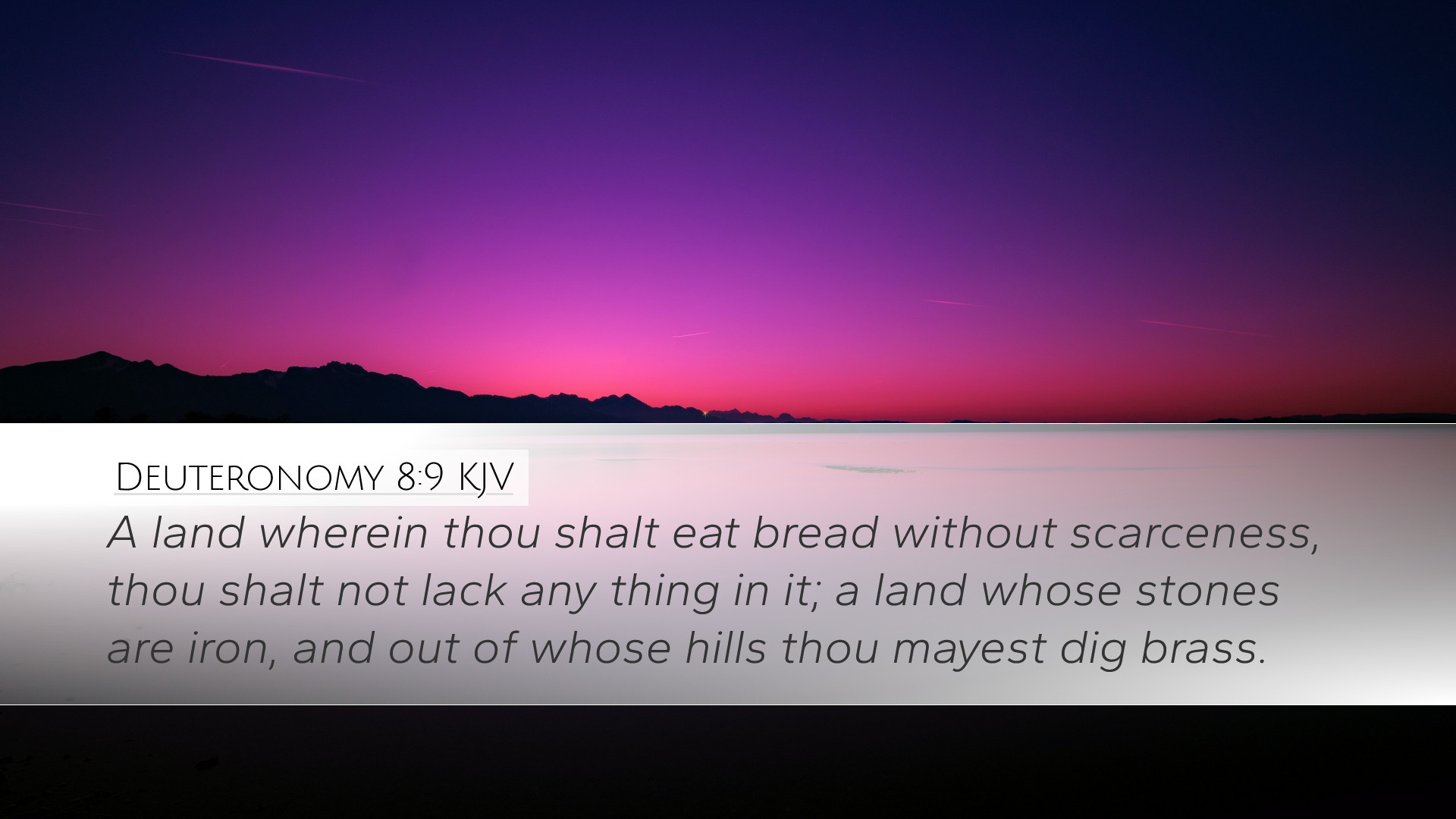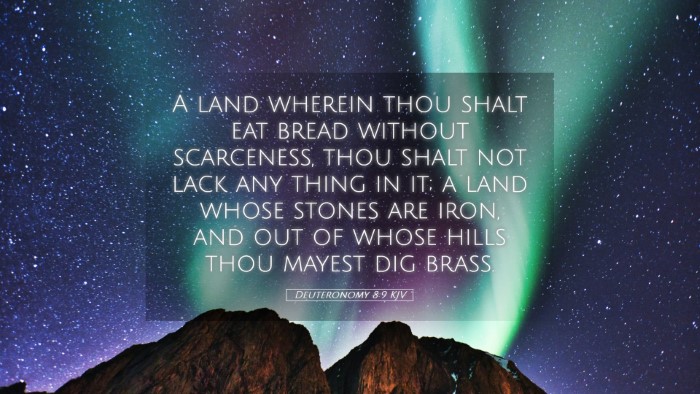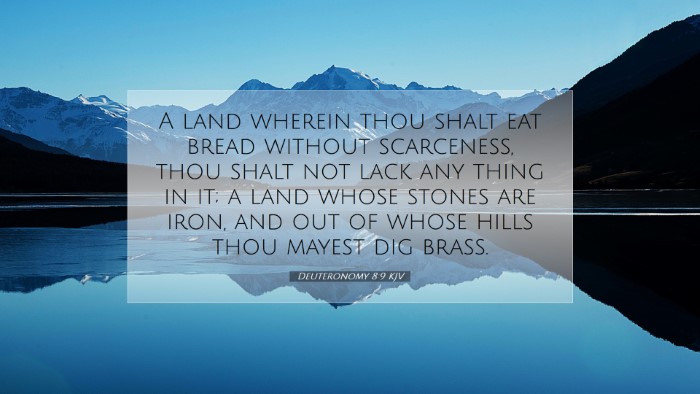Commentary on Deuteronomy 8:9
Deuteronomy 8:9 states:
“A land wherein thou shalt eat bread without scarceness, thou shalt not lack any thing in it; a land whose stones are iron, and out of whose hills thou mayest dig brass.”
Contextual Overview
The passage falls within Moses' instructions to the Israelites as they stand on the brink of entering the Promised Land. The chapter outlines God’s providential care and the necessity of gratitude and obedience in the new land, emphasizing the dangers of forgetfulness and pride.
Theological Insights
The themes encapsulated in this verse reveal a dual focus on divine provision and the richness of the land God promises. Here are insights provided by notable public domain commentators:
- Matthew Henry:
Henry conveys that this verse not only assures abundance but also emphasizes the complete sufficiency provided by God. The use of "bread without scarceness" highlights that God satisfies His people's needs abundantly. Furthermore, he suggests that the material wealth (iron and brass) signifies the strength and resources available for endeavors that honor God.
- Albert Barnes:
Barnes expands on the concept of prosperity and notes that the characteristics of the Promised Land are linked with divine favor. The statement "thou shalt not lack anything" reflects the total provision from God, suggesting that this abundance comes not from human toil alone but as a blessing from divine assurance. Barnes affirms that the physical prosperity is meant to support spiritual vitality.
- Adam Clarke:
Clarke emphasizes the importance of recognizing God’s hand in the wealth and resources of Canaan. He underlines that while the land contains physical riches, it is the acknowledgment of God’s blessings that is paramount. Clarke warns against complacency, reminding the faithful to remain humble and conscious of the source of their blessings, particularly in a land filled with abundance.
Interpretative Analysis
Exploring the metaphoric and literal meanings within the verse provides layers of understanding:
- Abundance as a Test of Faith:
Commentators agree that abundance can lead to spiritual neglect. The Israelites are counseled to remember their dependence on God during times of plenty, lest they become arrogant and forget the lessons learned in the wilderness.
- The Iron and Brass as Symbols:
The mention of iron and brass is often interpreted as a metaphor for strength and resilience. This imagery may symbolize not only the physical resources that the land holds but also the fortitude that God provides to His people to establish themselves and flourish.
Practical Applications
This verse has significant implications for believers today:
- Gratitude:
Understanding that all provisions come from God encourages a lifestyle of thankfulness. Acknowledging His past faithfulness can embolden the believer to face future challenges with faith.
- Stewardship:
With the blessing of abundance comes the responsibility to manage resources wisely. Pastors and students of the Word are encouraged to teach principles of stewardship that honor God's provision.
- Faith in Abundance and Scarcity:
During times of wealth, Christians are reminded not to lean on the abundance but to maintain a reliance on God. This tension between plenty and need signifies a lasting relationship with the Creator who sustains.
Conclusion
Deuteronomy 8:9 emphasizes God's generous provisions and the expected response of His people. The rich insights provided by various commentators contribute to a robust understanding of both the text and its implications for living a life reflective of God’s grace. As pastors and scholars delve deeper into this scripture, they are invited to not only interpret the passage with scholarly rigor but also to apply its principles practically within their communities.


